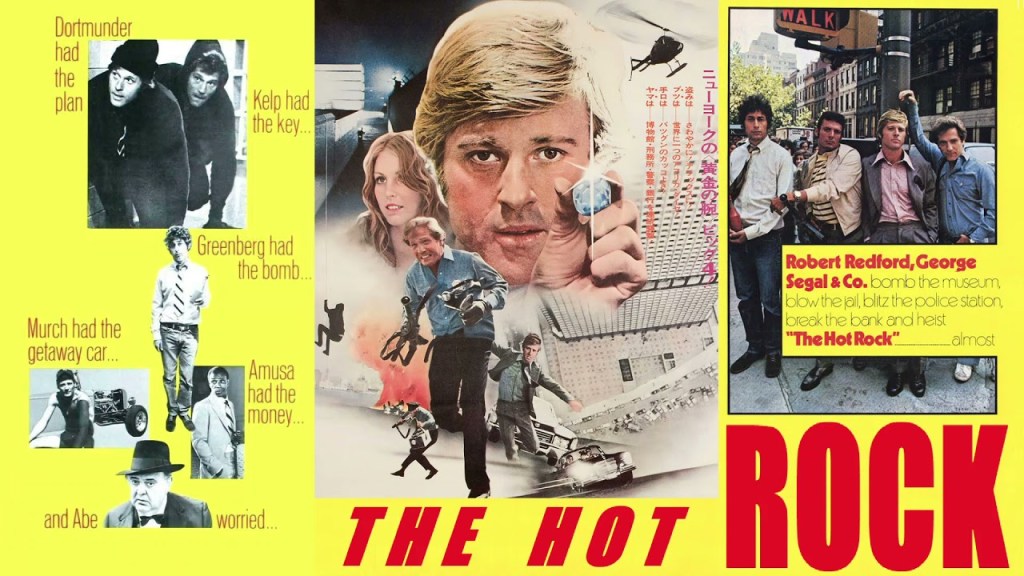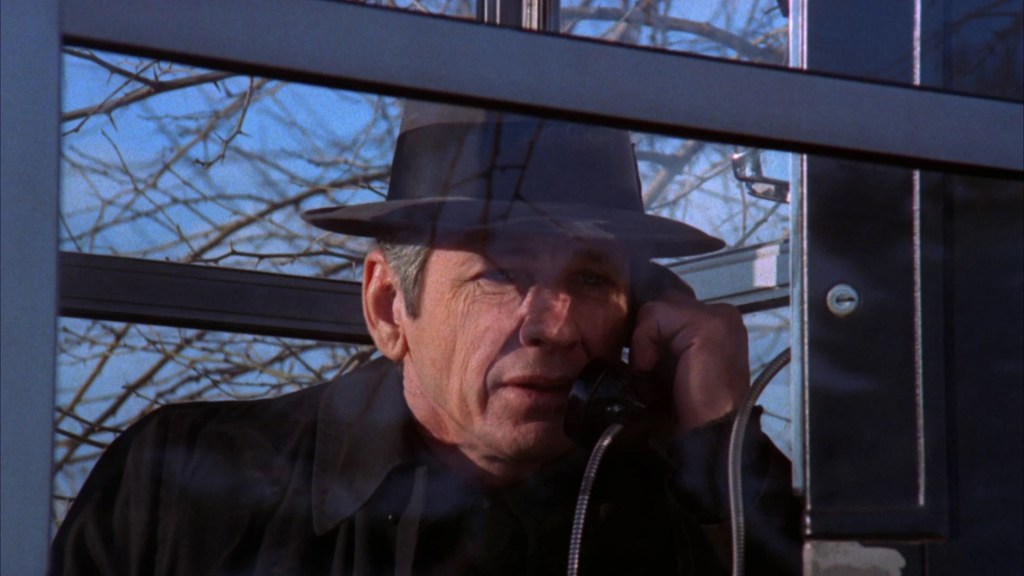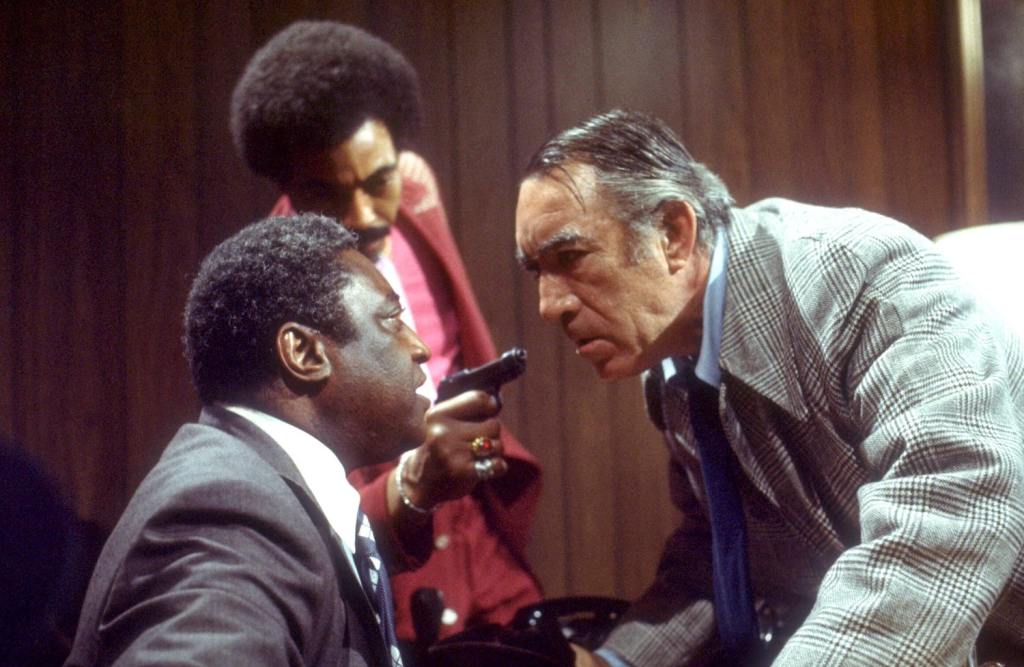
The Hot Rock (1972)
The Hot Rock shows incompetent thieves pull four successful jewel heists. It would be impressive if they weren’t always stealing the same gem: The Sahara Stone, a priceless diamond claimed by two separate African nations on loan for display at the Brooklyn Museum. Robert Redford’s John Dortmunder, newly out of prison but never going straight because his “heart wouldn’t be in it,” is the brains of the outfit. His brother-in-law Andy Kelp (George Segal) thinks from the other end but gets the job. Allan Greenberg (Paul Sand), the world’s greatest lock-picker, is all thumbs. Ambassador Dr. Amusa (Moses Gunn) wants the crown jewel stolen and returned to its ancestral home for a set price. At least that’s the plan. Costs, tensions, and hilarity soar as the crooks cook the book.
Based on Donald E. Westlake’s novel, The Hot Rock, screenwriter William Goldman and director Peter Yates polish the uncut stone, consolidating characters, and shaving robbery attempts for a tight telling of some loose canon. Circumstances subvert genre expectations as fast as Miasmo (Lynne Gordon) can say “Afghanistan banana stand.” The biggest thief is Zero Mostel, whose shyster lawyer character Abe Greenberg doesn’t keep the diamond but steals the film.

The Valachi Papers (1972)
The outside world would know nothing about the mafia if it weren’t for the 1963 testimony of the real-life Joseph Valachi. Starring Charles Bronson as the man whose name is synonymous with the word “rat” in some circles, The Valachi Papers shows why. Valachi is a standup guy who’d never think of breaking omerta, the mob’s code of silence. Don Vito Genovese (Lino Ventura) orders a prison execution before the jailed enforcer gets the chance. Nothing packs you running to the Justice Department faster than a shiv in the shower.
The role is an artistic high for Bronson, giving his most versatile performance, capturing Valachi as young, middle-aged, and old strictly through hair color and body language. He says more in silence than dialogue. The film jump-started a new career for the former supporting actor. Directed by Terence Young, produced by Dino De Laurentiis, and based on Peter Maas’ best-selling book, The Valachi Papers bombed at the box office because it came out too soon after The Godfather, and was compared unfavorably. Seen from a distance, it is a riveting historical reenactment without any frills. Let me burn like a card of a saint if I’m not telling the truth.

Across 110th Street (1972)
Director Barry Shear’s Across 110th Street is Hollywood’s first all handheld-camera-shot feature film. It is apparent in the realism, and imperative to the action, bringing intimate urgency and a documentary feel to an already realistic movie. Based on Wally Ferris’ book, the alleged blaxploitation flick is a masterpiece of crime cinema, mob rule, and urban planning. Cutting across the north end of Central Park, 110th St. is the dividing line to Harlem. In the late 1960s when the film is set, everyone who crosses above is squeezed by either the cops or the mob, or between them.
The film starts when three Black gangsters, two of them in cop uniforms, steal numbers money from Nick D’Salvio’s (Anthony Franciosa) mob family, killing two cops, two mafia button-men, and associates of the Harlem syndicate run by “Doc” Johnson (Richard Ward). It sparks a gang war that pits gangs against cops, and generations against the culture. Anyone not on the make is on the take. Anthony Quinn’s Captain Mattelli is one of the veteran actor’s most expertly villainous roles, drowning in corruption from both sides. Bobby Womack’s title track sets the beat so naturally, Quentin Tarantino timed it to bookmark Jackie Brown.
